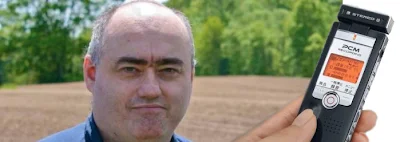 #1. Hidden Guns
#1. Hidden Guns
It's the most obvious spy gadget of them all: A gun that doesn't look like a gun. But while you've probably seen the odd shotgun cane or rifle umbrella (hopefully before it was too late), the sheer depth and breadth of tiny guns hidden in mundane objects might surprise you...
#2. U.S. Embassy Seal
Presented to the U.S. Ambassador by Soviet schoolchildren, this Great Seal of the United States hung proudly in the man's office in Spaso House from 1946 to 1952. Well, after a good bug scan, of course, which turned up nothing. The ambassador wasn't a fool: He knew the Soviets were desperately trying to bug everything they could get their hands on...
#3. Compass Buttons
If one of your soldiers is captured and placed in a POW camp, you want to make sure he's as well-prepared for escape as possible. After all, breaking out of prison is just the first step...
#4. Martini Olive
Budding mad scientist Hal Lipset specialized in inserting audio devices into seriously inappropriate places...
#5. Poop
In the Vietnam War, it was common for U.S. soldiers to litter the Vietnamese countryside with mounds of fake tiger shit. Why? To demoralize the enemy? To attract other tigers to their position? Just because it was funny? Nope: Because they had...
#6. Umbrella Dart Gun
Georgi Markov was a pair of freedom-loving bohemian testicles resting gently on the forehead of communist Bulgaria. His writing was winning all sorts of awards and stirring anti-communist movements all across Europe. Clearly, they had to get those balls off their face, and stat. So...
You would have to be mad not to love how Eric Axt of cracked.com wrote this up! Thanks for including us, Eric! (more)
 The membrane is made from a polystyrene-based polymer, which is sandwiched between two metal plates. When charged by those plates, it can store the energy at a rate of 0.2 farads per square centimeter - standard capacitors, by contrast, can typically only manage an upper limit of 1 microfarad per square centimeter.
The membrane is made from a polystyrene-based polymer, which is sandwiched between two metal plates. When charged by those plates, it can store the energy at a rate of 0.2 farads per square centimeter - standard capacitors, by contrast, can typically only manage an upper limit of 1 microfarad per square centimeter. 












